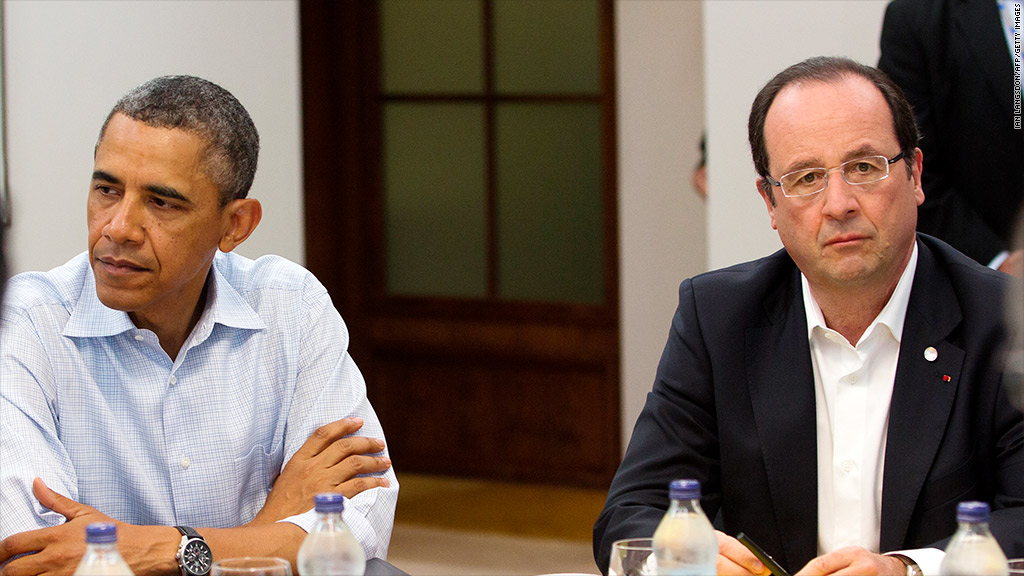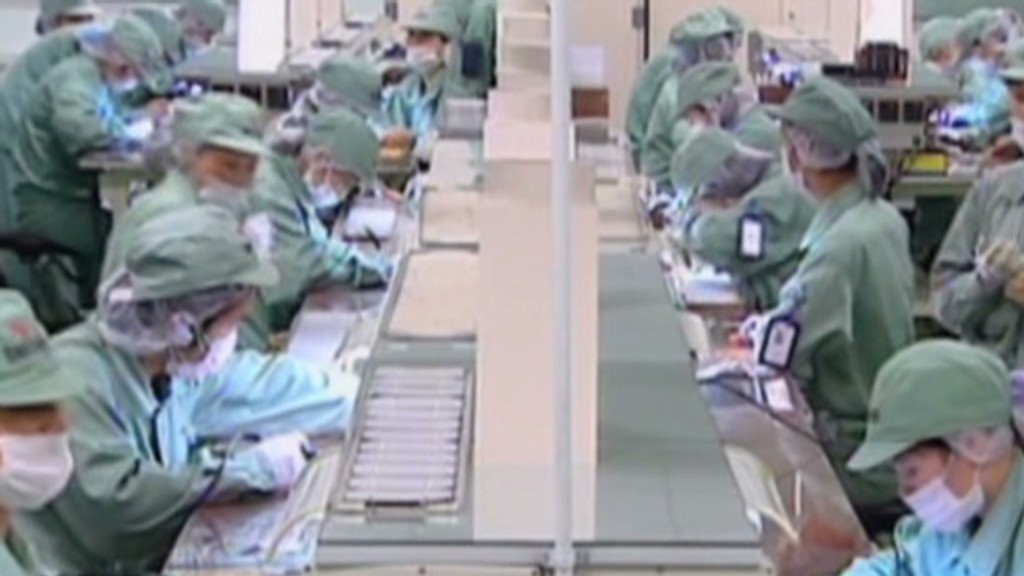
France wants to delay the start of negotiations on a huge free trade deal between Europe and the United States while it waits for the U.S. government to explain allegations of spying.
A government spokesperson said France was looking to delay the talks by roughly two weeks after a German newspaper reported that the U.S. government conducted surveillance on European states and institutions.
But the European Commission, which will lead the negotiations for the EU, said the talks would go ahead as planned despite concerns about potential snooping.
"Whilst the beginning of EU-U.S. trade negotiation should not be affected, the EU side will make it clear that for such a comprehensive and ambitious negotiation to succeed, there needs to be confidence, transparency and clarity among the negotiating partners," it said in a statement.
A spokesperson for the German government echoed this sentiment.
Negotiations are due to begin Monday on a transatlantic trade and investment pact that has the potential to add about $420 billion a year to the global economy.
German news magazine Der Spiegel reported Sunday that classified leaks from former National Security Agency contractor Edward Snowden detailed how the NSA bugged EU offices in Washington and New York, as well as conducted an "electronic eavesdropping operation" that tapped into an EU building in Brussels.
President Obama said Tuesday he needed more information on the specific programs cited in the report but made clear such spying was commonplace.
"I guarantee you that in European capitals, there are people who are interested in, if not what I had for breakfast, at least what my talking points might be should I end up meeting with their leaders," Obama said. "That is how intelligence services operate."
The European Commission will sweep its offices for electronic listening devices and other security breaches, a spokeswoman said Monday.
Related: U.S. curbs Bangladesh trade privileges
A comprehensive EU-U.S. trade deal would be the biggest of its kind and could add $160 billion to annual European income, $125 billion to U.S. income and $133 billion to other economies.
Together, the U.S. and EU account for about half of global economic output, and trade some $1 trillion in goods and services each year, supporting about 13 million jobs on both sides of the Atlantic.
A free trade deal could create as many as two million new jobs at a time when southern Europe is blighted by record unemployment and the U.S. is struggling to create enough new positions to bring its own jobless rate down significantly.

Plans to announce the start of negotiations were nearly derailed last month when France insisted that movies and music be excluded from the discussions, fearing U.S. media could overrun French-language products.
EU officials hammered out a compromise, which takes the audio-visual services industry off the table for now but lets the European Commission seek to broaden its negotiating mandate once talks are underway.
But the spat shows how tricky the talks will be. Other thorny topics are likely to include agriculture, aviation and public sector contracts.
--CNN's Laura Richardson contributed to this report from Paris.


